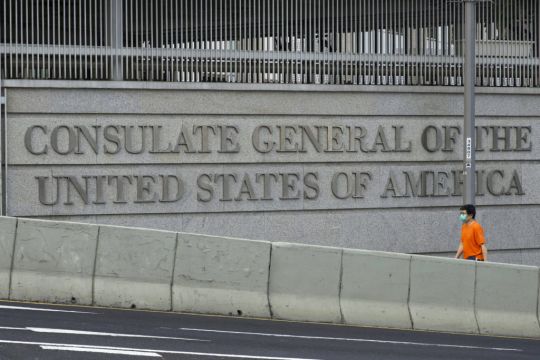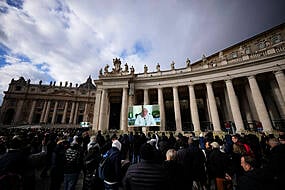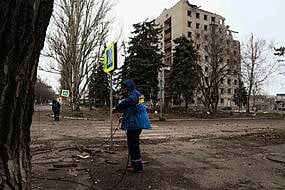A Chinese diplomat met the US consul general in Hong Kong and warned him not to cross “red lines” in protest against what China called his “inappropriate” interference in the territory’s affairs, the foreign ministry’s Hong Kong office said.
Consul General Gregory May gave a video address last month in which he expressed concern over diminished freedoms in Hong Kong and said its reputation as a business centre depended on adherence to international standards and the rule of law.
The Ministry of Foreign Affairs Office in Hong Kong said its commissioner Liu Guangyuan met Mr May recently to express objections to his words.
“Mr Liu also drew three red lines for the US consul general and US consulate general in Hong Kong, which is not to endanger China’s national security, not to engage in political infiltration in Hong Kong, and not to slander or damage Hong Kong’s development prospect,” his office said.
Mr Liu also urged Mr May to abide by diplomatic ethics, the office added.
The US consulate in Hong Kong did not immediately respond to a request for comment.
Mr May, in his address to the US Centre for Strategic and International Studies, also cited a decision by China’s legislature that lets Hong Kong’s executive branch decide whether foreign lawyers can be involved in national security cases in the city.
The decision was made after the city’s top court allowed pro-democracy publisher Jimmy Lai to hire a British lawyer to represent him as he fights collusion charges that could bring a life prison sentence if he is convicted.
Mr Liu’s office accused Mr May of slandering the rule of law and freedom in Hong Kong when he questioned the legal decision made in Beijing and other changes in Hong Kong’s governance.
The US and other democracies have been critical of China’s crackdown on political freedoms in the former British colony, which was handed back to China in 1997 with a promise by Beijing to keep Western-style liberties under a “one country, two systems” framework.
Hong Kong is among a raft of issues that have sent ties between Beijing and Washington to their lowest level in years, including technology and trade, human rights, threats against Taiwan, and China’s claims in the South China Sea.







